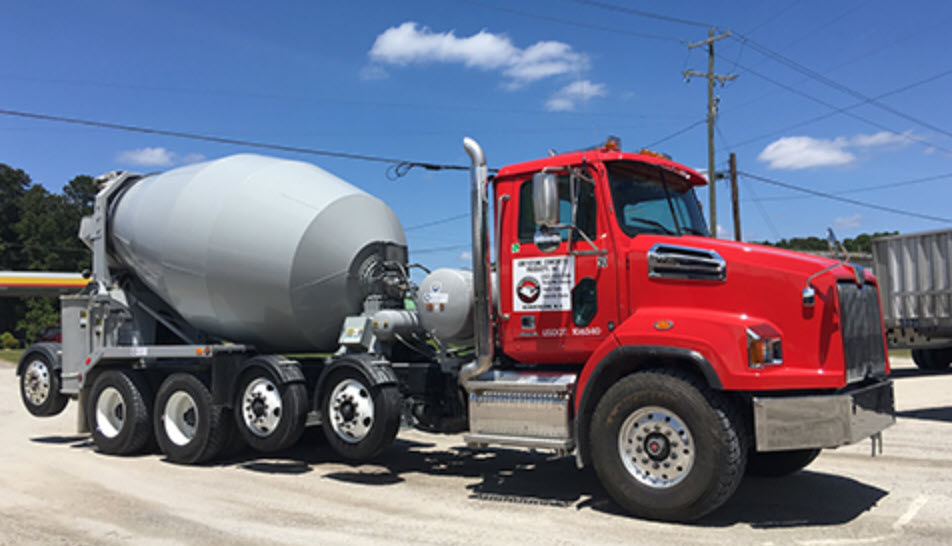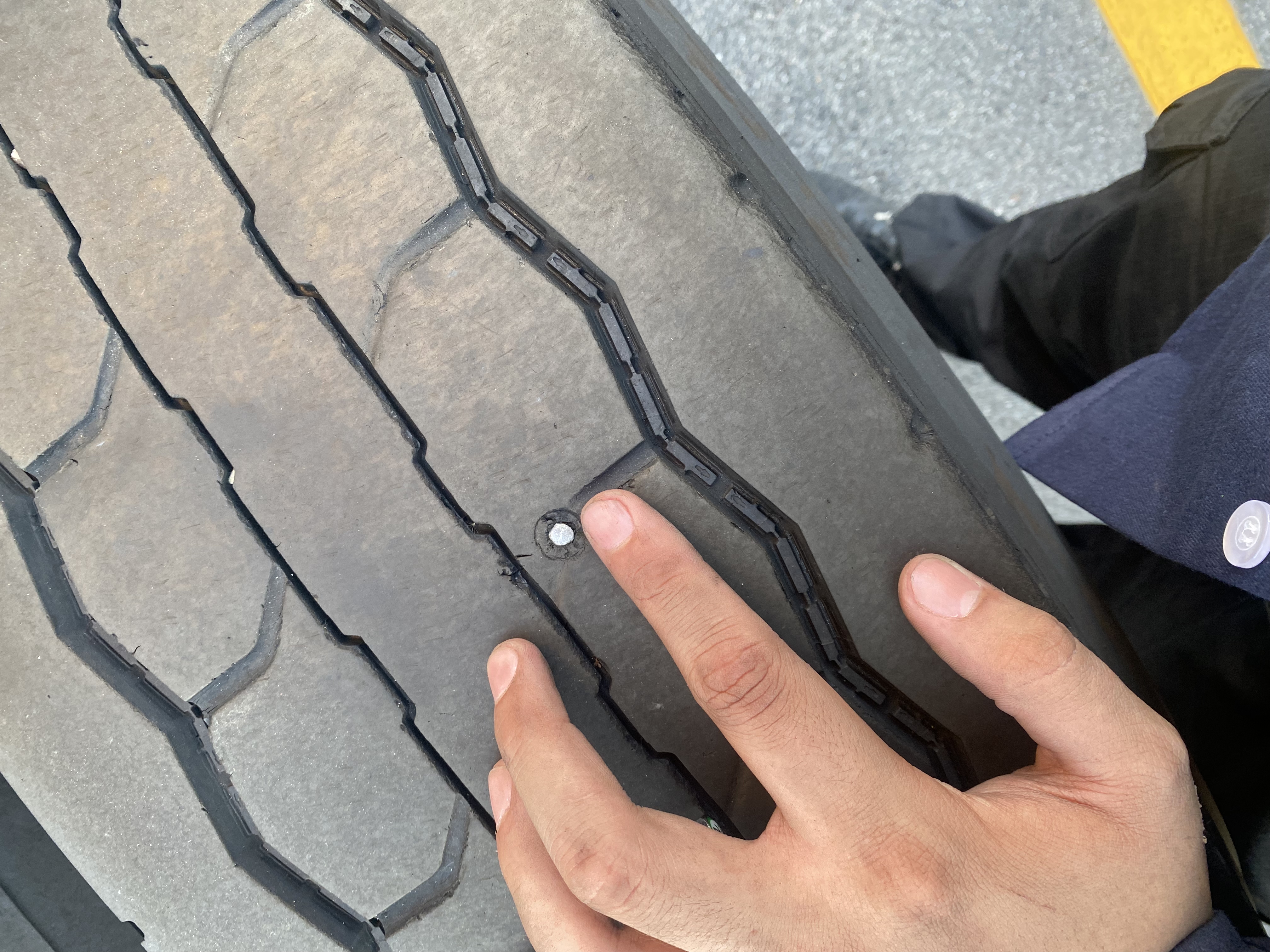In today’s transportation industry, keeping operational costs low while maximizing efficiency is more crucial than ever. One of the most effective ways to achieve this is through fuel efficient tire inflation. Properly inflated tires are not just about maintaining the right pressure; they play a vital role in the overall performance of your fleet. By ensuring your tires are inflated correctly, you can save a significant amount of fuel, extend the lifespan of your tires, and enhance the safety of your vehicles on the road.
At Fuel & Tire Saver Systems Company, LLC, we specialize in mobile onsite nitrogen tire inflation services. Our expert team visits truck fleets across Virginia, Maryland, Pennsylvania, North Carolina, Tennessee, and Georgia to inspect and inflate tires. This service not only helps in saving fuel but also contributes to a safer and greener environment. Nitrogen inflation has been proven to maintain tire pressure for a longer period compared to regular air, reducing the frequency of inflations and ensuring optimal tire performance.
Interested in learning more about how our services can benefit your fleet? Request Fleet Pricing, Contact our office at (703) 429-0382, or email Mike.LoPresti@fuelandtiresaver.com. Take the first step towards a more efficient and cost-effective operation today!
Table of Contents
ToggleBenefits of Proper Tire Inflation

Proper tire inflation is more than just a maintenance task; it is a cornerstone of fleet management that offers a multitude of benefits. The first and foremost advantage is improved fuel efficiency. Under-inflated tires create more rolling resistance, which means the engine has to work harder and consume more fuel. By ensuring tires are inflated to the correct pressure, you can significantly reduce fuel consumption.
Another critical benefit is the extension of tire lifespan. Tires that are either under-inflated or over-inflated wear out more quickly and unevenly. This not only leads to frequent tire replacements but also increases the risk of blowouts, which can be dangerous and costly. Properly inflated tires wear evenly, extending their life and reducing the need for premature replacements.
Safety is another crucial aspect that cannot be overlooked. Properly inflated tires provide better traction and handling, reducing the likelihood of accidents. They are more capable of maintaining their shape and structure, which is essential for carrying heavy loads and navigating various road conditions.
Additionally, properly inflated tires contribute to a quieter and more comfortable ride. They absorb road shocks better, reducing vibrations and making long hauls more manageable for drivers.
Lastly, maintaining the correct tire pressure is an environmentally friendly practice. By optimizing fuel consumption and extending tire life, you are reducing your fleet’s carbon footprint. Every gallon of fuel saved means fewer emissions, contributing to a greener planet.
In summary, the benefits of proper tire inflation are manifold, encompassing improved fuel efficiency, extended tire life, enhanced safety, better ride comfort, and environmental sustainability. Investing in regular tire inspections and nitrogen inflation can lead to substantial long-term savings and operational efficiencies for your fleet.
How Nitrogen Inflation Enhances Efficiency

Nitrogen inflation is gaining popularity among fleet managers for its remarkable ability to enhance efficiency. One of the key advantages of using nitrogen over regular air is its *stability*. Nitrogen molecules are larger and less likely to seep through the rubber of the tires, which means the tire pressure remains more consistent over time. This stability translates to fewer pressure checks and adjustments, saving both time and labor costs.
Another significant benefit is the reduction of oxidation. Regular air contains oxygen, which can react with the rubber and other tire components, leading to deterioration and reduced tire life. Nitrogen, being an inert gas, does not promote oxidation, thereby extending the life of the tires and maintaining their structural integrity.
Nitrogen inflation also contributes to *better fuel efficiency*. Since nitrogen-filled tires maintain optimal pressure for longer periods, the vehicle operates at peak performance with reduced rolling resistance. This means the engine has to exert less effort to move the vehicle, resulting in lower fuel consumption. In fact, studies have shown that nitrogen inflation can improve fuel efficiency by up to 3%, which can translate to substantial savings over time for large fleets.
Furthermore, nitrogen inflation enhances safety. Consistent tire pressure ensures better handling and traction, reducing the risk of accidents. Additionally, nitrogen-filled tires are less prone to blowouts, a common issue with under-inflated or over-inflated tires, especially under heavy loads or at high speeds.
Lastly, nitrogen inflation is environmentally friendly. By maintaining optimal tire pressure and extending tire life, you are not only conserving fuel but also reducing the number of tires that end up in landfills. This practice helps lower the carbon footprint of your fleet, contributing to a more sustainable operation.
Incorporating nitrogen inflation into your tire maintenance routine offers numerous benefits, from improved fuel efficiency and tire longevity to enhanced safety and environmental sustainability. It is a cost-effective solution that can lead to significant operational efficiencies and long-term savings for your fleet.
Steps to Ensure Proper Tire Inflation

Maintaining proper tire inflation is crucial for maximizing fuel efficiency and ensuring the safety and longevity of your tires. Here are the essential steps to ensure your tires are always properly inflated:
1. Regularly Check Tire Pressure: It’s important to check your tire pressure at least once a month and before long trips. Use a reliable tire pressure gauge to measure the pressure when the tires are cold, as heat can cause air to expand and give a false reading. Ensure the pressure matches the manufacturer’s recommended levels, usually found on the driver’s door jamb or the owner’s manual.
2. Use Nitrogen Inflation: Consider filling your tires with nitrogen instead of regular air. As discussed, nitrogen maintains a more stable pressure for longer periods, reducing the frequency of necessary pressure checks and adjustments. This consistency helps in achieving better fuel efficiency and extending tire life.
3. Inspect for Wear and Tear: Regularly inspect your tires for any signs of wear and tear, such as cuts, bulges, or uneven tread wear. Uneven wear can indicate alignment issues or improper inflation. Addressing these issues promptly can prevent more significant problems and improve overall performance.
4. Rotate Tires Regularly: Rotating your tires every 6,000 to 8,000 miles helps ensure even wear across all tires, extending their life and maintaining better traction and handling. Consult your vehicle’s manual for the recommended rotation pattern and schedule.
5. Balance and Align Tires: Properly balanced and aligned tires reduce uneven wear and improve fuel efficiency. Have your tires balanced and aligned by a professional at least once a year or whenever you notice issues like steering wheel vibration or the vehicle pulling to one side.
6. Avoid Overloading: Overloading your vehicle can cause excessive tire wear and reduce fuel efficiency. Always adhere to the manufacturer’s recommended load capacity and distribute weight evenly to avoid putting undue stress on the tires.
By following these steps, you can ensure your tires are properly inflated, leading to improved fuel efficiency, enhanced safety, and extended tire life. Consistent maintenance and vigilance are key to getting the most out of your tires and keeping your fleet running smoothly.
Impact of Underinflation on Fuel Efficiency
Underinflation of tires can have a significant impact on fuel efficiency, affecting not just your bottom line but also the overall performance and safety of your fleet. Here are the key ways in which underinflation negatively impacts fuel efficiency:
1. Increased Rolling Resistance: Underinflated tires have a larger contact area with the road, which increases rolling resistance. This means the engine has to work harder to move the vehicle, leading to higher fuel consumption. According to studies, a tire underinflated by just 10% can increase fuel consumption by up to 2%.
2. Heat Buildup: When tires are underinflated, they flex more as they roll, generating excessive heat. This heat buildup can not only reduce the lifespan of the tire but also lower fuel efficiency. Excessive heat can cause tire blowouts, posing a serious safety risk.
3. Uneven Tread Wear: Underinflated tires wear out more quickly and unevenly, particularly on the outer edges. Uneven tread wear reduces traction and increases the risk of skidding, which can lead to accidents. Moreover, uneven wear necessitates more frequent tire replacements, adding to maintenance costs.
4. Reduced Vehicle Performance: Properly inflated tires contribute to optimal vehicle handling and performance. Underinflated tires can make steering sluggish and braking less effective, which requires the driver to compensate by using more fuel to maintain control and speed.
5. Environmental Impact: Increased fuel consumption due to underinflation not only affects your budget but also has environmental consequences. Higher fuel consumption results in increased greenhouse gas emissions, contributing to air pollution and climate change.
Maintaining proper tire inflation is essential for maximizing fuel efficiency and ensuring the safety and longevity of your tires. Regularly checking tire pressure and using nitrogen inflation can help mitigate the negative impacts of underinflation. By keeping your tires properly inflated, you can achieve better fuel efficiency, reduce environmental impact, and ensure a safer driving experience.
Environmental Benefits of Correct Tire Inflation

Proper tire inflation doesn’t just save you money and improve safety; it also has significant environmental benefits. Keeping your tires correctly inflated can contribute to a healthier planet in several ways:
1. Reduced Fuel Consumption: Properly inflated tires minimize rolling resistance, which means your vehicle uses less fuel. Lower fuel consumption directly translates to fewer greenhouse gas emissions. In fact, maintaining proper tire pressure can improve fuel efficiency by up to 3%, which significantly reduces your carbon footprint over time.
2. Prolonged Tire Life: Underinflated or overinflated tires wear out more quickly and unevenly, leading to more frequent replacements. By keeping your tires properly inflated, you extend their lifespan, reducing the demand for new tires. This, in turn, decreases the number of tires that end up in landfills, helping to mitigate the environmental impact of tire disposal.
3. Decreased Air Pollution: Vehicles with properly inflated tires operate more efficiently, producing fewer pollutants. Reduced fuel consumption means fewer emissions of harmful substances such as carbon monoxide, nitrogen oxides, and hydrocarbons, all of which contribute to air pollution and respiratory problems.
4. Conservation of Natural Resources: The production of tires requires significant natural resources, including rubber, steel, and oil. By prolonging the life of your tires through proper inflation, you help conserve these valuable resources. This conservation effort supports sustainable practices and reduces the environmental impact of tire manufacturing.
5. Enhanced Vehicle Performance: Proper tire inflation ensures optimal vehicle performance, which means your engine doesn’t have to work as hard. This increased efficiency not only saves fuel but also reduces overall wear and tear on your vehicle, contributing to a longer lifespan and less frequent need for repairs and replacements.
By taking the simple step of maintaining correct tire pressure, you can contribute to a cleaner, greener planet. Join us in making a positive impact on the environment while enjoying the benefits of fuel savings and enhanced safety.
Request Fleet Pricing at https://fuelandtiresaver.com/contact/, Contact our office at (703) 429-0382, or email Mike.LoPresti@fuelandtiresaver.com


